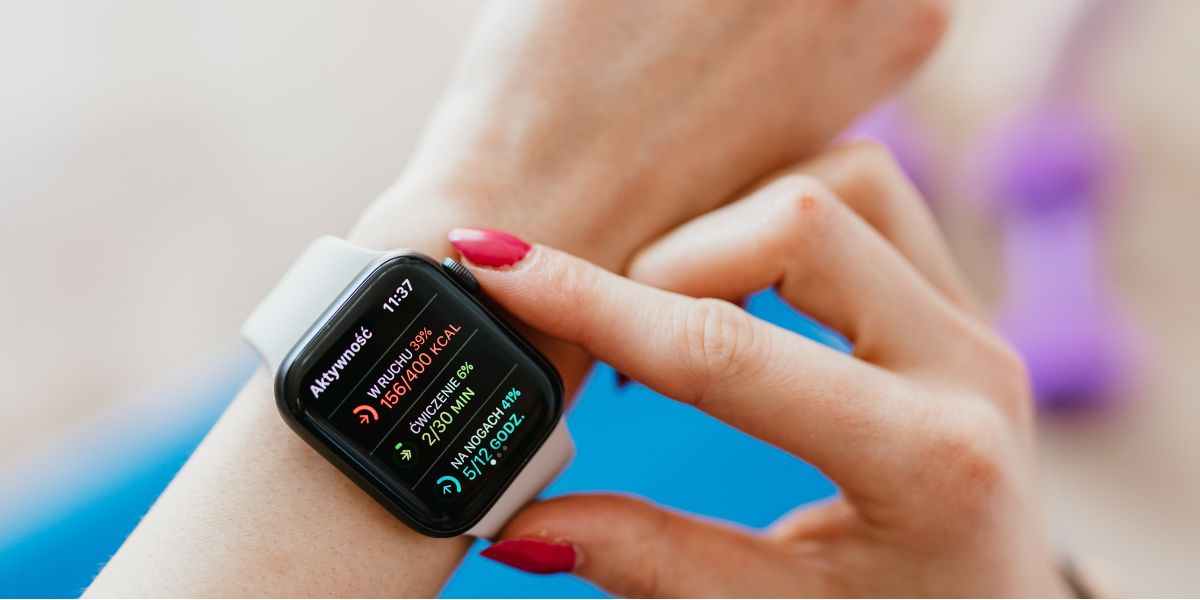
Your smartwatch is more than just a timekeeping accessory; it's a powerful tool for keeping tabs on your health. Have you ever wondered if it could do more than just count your steps? Well, imagine having insights into your heart rate, sleep patterns, and stress levels right at your fingertips. The array of health metrics it can track might surprise you. So, why not explore the full potential of your smartwatch and discover how it can empower you to take charge of your well-being?
Heart Rate Monitoring
When tracking heart rate with smartwatches, you can monitor your pulse continuously throughout the day. This feature allows you to keep a close eye on your heart rate during various activities, providing valuable insights into your overall health and fitness levels. By wearing your smartwatch regularly, you can gather data on how your heart rate responds to different situations, such as exercise, stress, or rest.
Smartwatches equipped with heart rate monitoring technology use sensors on the back of the device to measure the blood flow through your wrist. These sensors detect the pulsing of blood, enabling the smartwatch to calculate your heart rate in real-time. The data collected is then displayed on the watch's screen or synced to a companion app on your smartphone for more in-depth analysis.
Monitoring your heart rate with a smartwatch can help you track your fitness progress, optimize your workouts, and even detect potential health issues early on. By staying informed about your heart rate patterns, you can make more informed decisions about your lifestyle and well-being.
Sleep Tracking
To gain a comprehensive understanding of your health metrics, smartwatches also offer sleep tracking capabilities, allowing you to monitor and analyze your sleep patterns and quality. By wearing your smartwatch to bed, it can track metrics such as the duration of your sleep, your sleep stages (light, deep, REM), and even disruptions during the night. This information provides insights into your sleep quality, helping you identify patterns that may affect your overall health and well-being.
Moreover, tracking your sleep can also help you establish a more consistent sleep routine by highlighting areas for improvement, such as going to bed at a more consistent time or reducing screen time before sleep. Some smartwatches even offer features like sleep score calculations, which condense your night's sleep into a single easy-to-understand metric. By utilizing the sleep tracking capabilities of your smartwatch, you can work towards better sleep habits and ultimately improve your overall health and performance.
Activity and Exercise Data
By tracking your activity and exercise data, smartwatches provide valuable insights into your physical movement and workout routines. These devices can monitor metrics such as steps taken, distance traveled, and calories burned throughout the day. By analyzing this data, you can set goals to increase your daily activity levels and improve your overall fitness.
Smartwatches also offer features like heart rate monitoring, which can help you gauge the intensity of your workouts and ensure you're exercising in the optimal heart rate zone for your goals. Some devices even have GPS capabilities to track your running or cycling routes accurately. This information can be valuable for monitoring progress, discovering new workout paths, or analyzing performance during races or training sessions.
Moreover, many smartwatches come equipped with activity reminders and prompts to help you stay active throughout the day. These gentle nudges can encourage you to take short walking breaks or stretch regularly, promoting better circulation and reducing the negative effects of prolonged sitting. By utilizing the activity and exercise data provided by your smartwatch, you can make informed decisions to enhance your physical well-being and lead a more active lifestyle.
Stress Level Detection
Monitoring stress levels is a key feature of smartwatches, providing valuable insights into your mental well-being. These devices use heart rate variability (HRV) to assess stress levels, as stress can affect your heart rhythm. By analyzing changes in HRV, smartwatches can detect when you're under stress or feeling anxious. This information allows you to better understand how stress impacts your body throughout the day.
When your smartwatch detects elevated stress levels, it can prompt you to practice mindfulness or take a moment to relax. Some smartwatches even offer guided breathing exercises to help you calm down. By being more aware of your stress levels, you can take proactive steps to manage stress and improve your overall well-being.
Smartwatches that monitor stress levels provide you with valuable data that can help you make lifestyle changes to reduce stress and promote mental wellness. By incorporating stress tracking into your daily routine, you can work towards a healthier and more balanced lifestyle.
Blood Oxygen Saturation Tracking
Tracking your blood oxygen saturation is a vital function of smartwatches, allowing you to monitor your oxygen levels throughout the day. This feature, also known as SpO2 monitoring, measures the percentage of oxygen being carried by your red blood cells. By continuously tracking your blood oxygen saturation levels, smartwatches provide valuable insights into your respiratory health and overall well-being.
Maintaining optimal blood oxygen levels is crucial for your body to function efficiently. Low blood oxygen saturation, known as hypoxemia, can lead to symptoms like shortness of breath, rapid heart rate, and confusion. By regularly checking your SpO2 levels, you can detect potential issues early on and take necessary actions to improve your respiratory function.
Smartwatches equipped with blood oxygen saturation tracking can be particularly beneficial during activities such as exercise or high-altitude trekking, where oxygen levels can fluctuate. These devices offer a convenient way to keep an eye on your SpO2 levels in real-time, empowering you to make informed decisions about your health and lifestyle.




